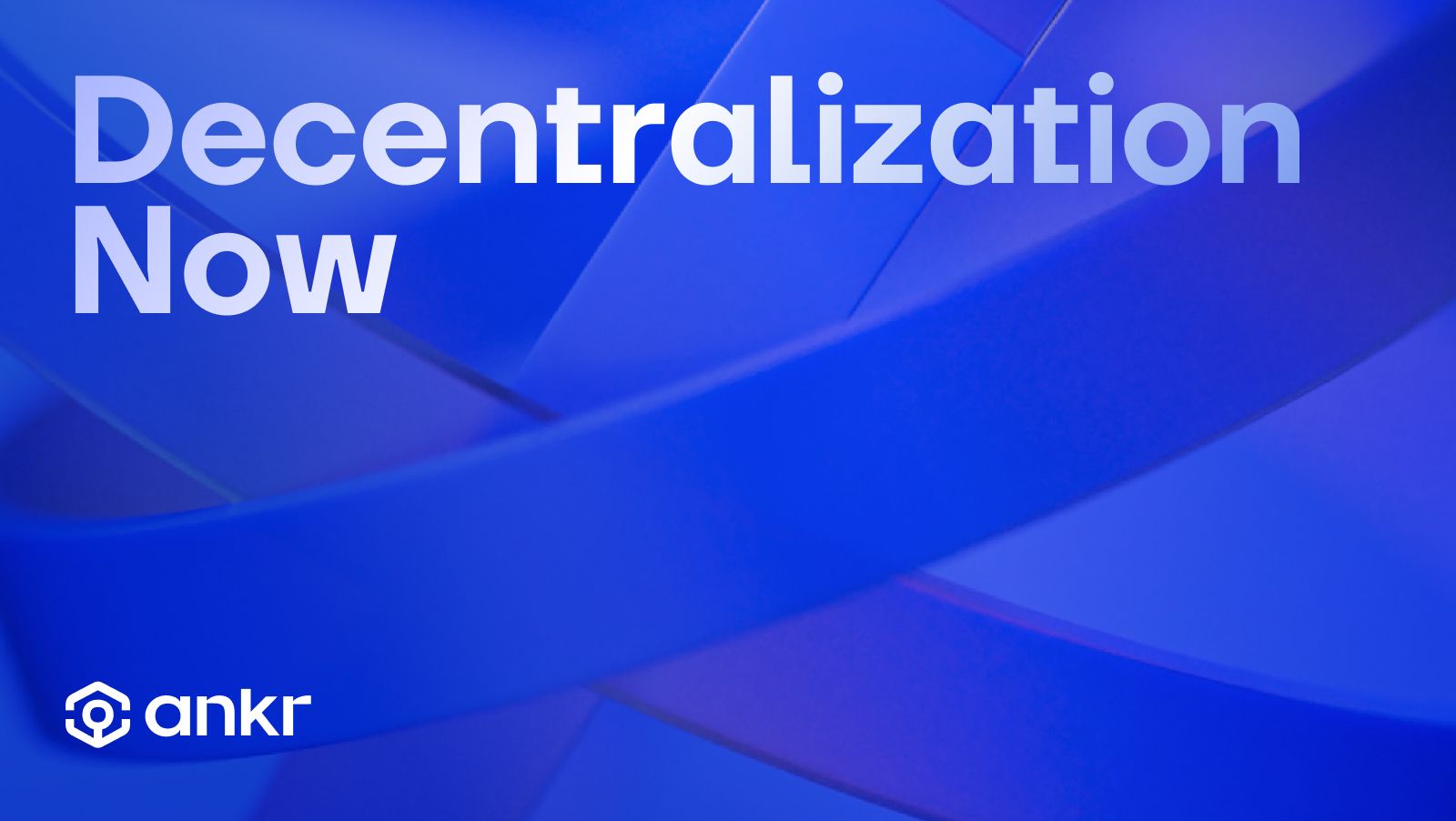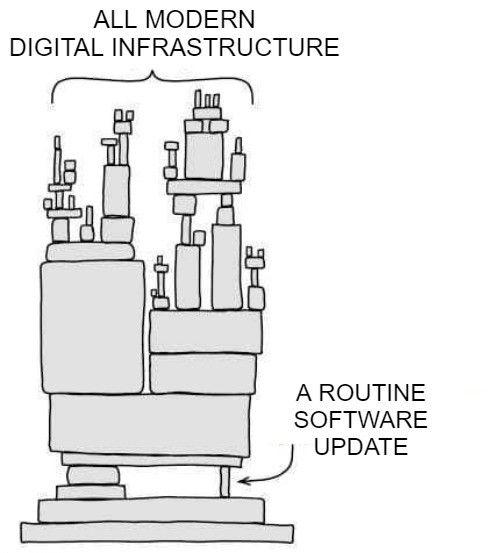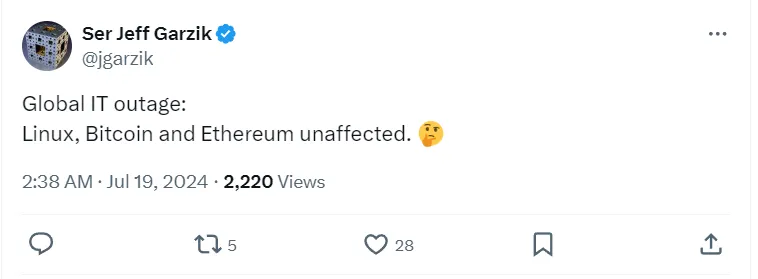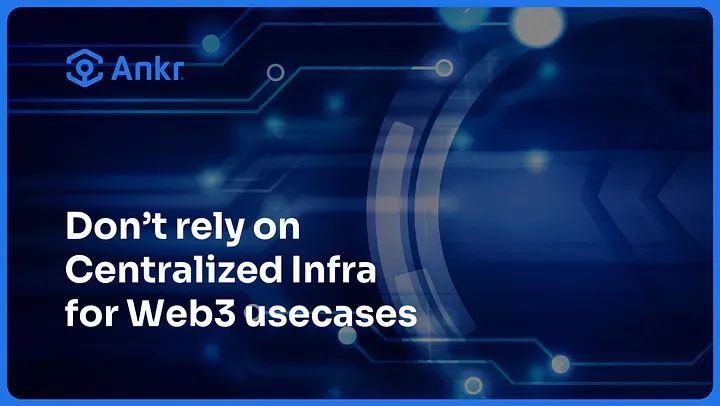Single Point of Failure: Security Risks and the Need To Decentralize

July 23, 2024
6 min read

Decentralization.
One of blockchain’s simplest (and most important) principles is in the spotlight once again.
Last Friday, a widespread tech outage crippled businesses, grounded flights, and disrupted everyday life, with cybersecurity firm CrowdStrike at the center of the turmoil. The disruption, affecting everything from banks and airports to hospitals, exposed the fragility of a world increasingly reliant on centralized digital systems with apparent single points of failure.
The disruption begs the question, what happens one day when systems don’t come back online as easily? Worries of ‘techmageddon’ are all the more significant as hacks become more advanced and AI tools are thrown into the mix.
So what lessons have we learned, and how can we use decentralization to defend against the threat of the world going dark more often? Let’s take a look.
Serious Outages Caused by Centralization Vulnerabilities

“All too often these days, a single glitch results in a system-wide outage, affecting industries from healthcare and airlines to banks and auto-dealers. Millions of people and businesses pay the price. These incidents reveal how concentration can create fragile systems.”
– Lisa Khan, Chair of the Federal Trade Commission on X
In an Era where routine software updates can wreak massive havoc on the world as seen in events like the SolarWinds hack, Meta outage, and the most recent CrowdStrike debacle, we should take note of prominent outages of the past 4 years.
- Google 2020: Affected Google's core services, including YouTube, Gmail, and Google Drive, caused significant disruption for users worldwide. The incident emphasized the company's service dominance and the reliance of many on its services.
- Fastly 2021: Caused significant disruptions to a wide range of websites and online services that relied on Fastly's content delivery network (CDN). Major platforms like Amazon, Reddit, The New York Times, and others were affected.
- Twitter and Instagram 2022: A simultaneous outage of both platforms caused a significant disruption in social media usage.
- Amazon Web Services 2023: In June 2023, AWS experienced a significant outage in its Northern Virginia (US-EAST-1) region. This region is a critical hub for many large enterprises and high-traffic websites.
In each of these cases, there was a failure due to the centralization and concentration of digital services and infrastructure. This leads to cascading failure as services and companies that rely on each other are taken offline. There is a clear need to take a hard look at the structure of our infrastructure to disperse operations and improve resilience.
At its core, the Web3 movement is about decentralizing not only the digital infrastructure itself but also the applications and services that run on top of it. Next, we can take a look at why blockchain is uniquely suited to bolster reliability in our critical systems.
How Do Decentralized Systems Upgrade Resilience?

Source: Jeff Garzik on X
If one node goes down, a different one remains up.
That is the core premise of decentralization and distributed networks and the reason why blockchains like the bitcoin network are nearly impossible to take offline by governments or bad actors.
Blockchains are comprised of thousands or millions of different nodes being run by a wide variety of different parties. That means when applications are built on top of blockchains, they inherit the security and immutability of these networks.
Imagine a blockchain-based email application such as LedgerMail or W3 Mail. These dApps use blockchain for decentralized message-sending and storage via other protocols like Interplanetary File System (IPFS). This is a much better service framework in terms of resilience as it is not prone to the same centralized storage vulnerabilities that took out Gmail and many other applications during Google’s 2020 outage.
Blockchain projects like Internet Computer Protocol (ICP) are betting on the need to implement more blockchain-based decentralization into everything from gaming to enterprise cloud solutions with their Utopia project. As a decentralized cloud computing platform, Utopia could help prevent the cascading effects of cloud provider outages like those from AWS with diverse multi-cloud infrastructure for increased resilience.
It’s easy to imagine how blockchain can help decentralize the systems that we rely on every day, but what keeps blockchain’s themselves decentralized and operating smoothly? Let’s check that out next.
How Ankr Helps Decentralize Web3 Systems

Original Article: Why You Shouldn’t Rely on Centralized Infrastructure for Web3
If blockchains become the decentralized cure for the overcentralized digital infrastructure we rely on, then who will run the blockchain infrastructure? A study in 2022 found that nearly 70% of Ethereum nodes are deployed on cloud services like AWS, GCP, and Oracle. That is not ideal, of course, if you are shooting for network resilience.
More than that, the majority of dApps rely on Web3 API providers like Infura or Ankr for a connection to different blockchains. That is why it’s been so important for Ankr to build decentralization into our node infrastructure, which keeps Web3 running.
Ankr has recognized the need for the decentralization of Web3 infrastructure itself. We’ve implemented that thinking into the design of every product and service we offer with a foundation of:
Bare-Metal Node Infrastructure
Many Web3 infrastructure providers solely use cloud services such as AWS to deploy their blockchain nodes. However, Ankr hosts the vast majority of our nodes on custom, dedicated servers. One of the key differences between cloud and bare-metal infrastructure is that bare-metal servers (or nodes) are physical and identifiable machines within secure data centers.
Read more: Ankr's RPC Performance Advantage: Global Bare-Metal Node Infrastructure
DePIN Node Operations
Ankr has created a Decentralized Physical Infrastructure network of nodes that powers a connection to 55+ blockchains for developers and dApps. With a diverse group of partners including Microsoft, Tencent Cloud, IoTeX, and Storj opting into the program, it powers an extremely resilient decentralized program for operating blockchains.
“Ankr is not only extremely reliable themselves, but they offer a load balancing system with their own servers and others. It’s perfect.”
– Victor Sanchez, CTO of Kinto
Read more: The Future of Decentralized Physical Infrastructure
Global Load Balancing
As Ankr has nodes and load balancers running in 40+ data centers in more global regions than any provider, we have the unique ability to serve RPC requests closer to their point of origin as well as extremely strong protection against outages even on a regional level. The idea behind geo-based routing is to minimize network latency and improve the overall performance of the system by reducing the time it takes for data to travel between the client and the server.
Read more: Ankr’s RPC Performance Advantage: Load Balancing
Web3 Development Products
Ankr not only operates the node infrastructure required to run blockchains, but has created an entire suite of products that make it easier to build new decentralized applications and networks. With tools like our Rollup-as-a-Service, developers can create new blockchains and dApps that are armed with the leading edge of security and resilience.
Bullish on the Decentralized Future
Elon Musk once surmised that the most entertaining outcome is the most likely. But sometimes, the most boring use case for a technology can be the most important. For all its far-reaching ambitions to decentralize everything from gaming to AI, one of blockchain’s most critical use cases has been staring at us from the beginning—helping keep our systems up and resilient so our society, which is increasingly built on digital infrastructure, can stay safe and secure.
Join the Conversation on Our Channels!
Twitter | Telegram | Discord | YouTube | LinkedIn | Instagram | Reddit | All Links



